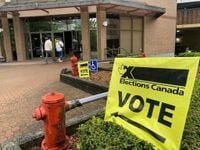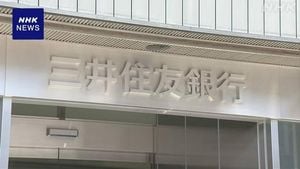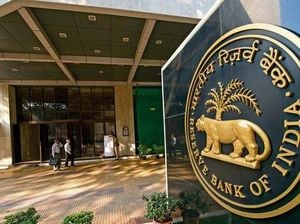As Canada heads to the polls on April 29, 2025, British Columbia emerges as a pivotal battleground in the federal election, with 43 seats up for grabs. With polls indicating a neck-and-neck race between the Conservative and Liberal parties, and the New Democratic Party (NDP) trailing significantly, the stakes are high for all parties involved.
Political analyst David Moscrop emphasized the potential impact of British Columbia on the final seat count, stating, "This could be an election where B.C. makes a significant difference in the final seat count. If it is really tight up to the end, and the Conservatives and the Liberals are running neck and neck, a couple of seats in B.C. could make a big difference," as reported by Global News.
In the last federal election, the Liberals secured 15 seats in B.C., while both the Conservatives and the NDP won 13 each. However, recent polling from 338Canada.com suggests a dramatic shift, with the NDP garnering only 14% support compared to 40% for both the Conservatives and Liberals.
Metro Vancouver, a seat-rich area, is once again a focal point in this election. In 2021, the Liberals captured 13 seats here, with the NDP claiming five and the Conservatives securing two. The NDP's apparent decline in support poses a significant threat to their hold on key ridings, including Burnaby Central, where NDP Leader Jagmeet Singh is fighting to retain his seat.
Singh is facing stiff competition, with Liberal candidate Wade Chang currently leading in the early vote counts, as of 8:50 p.m. on election day, with 3,261 votes compared to Singh's 1,604. Conservative James Yan is not far behind with 2,743 votes. The stakes are high, as Singh's loss would mark a significant setback for the NDP in British Columbia.
Adding to the drama, the Liberals are targeting several New Democratic ridings in Metro Vancouver, including Port Moody-Coquitlam, New Westminster-Burnaby-Maillardville, and Vancouver Kingsway. If the Liberals manage to gain traction, even historically safe NDP ridings like Vancouver East could be at risk.
Meanwhile, the Conservatives are eyeing potential flips in Metro Vancouver, targeting ridings such as Richmond East-Steveston, Richmond Centre-Marpole, Surrey Centre, and Cloverdale-Langley City. The competition is fierce, with both Pierre Poilievre and Liberal Leader Mark Carney holding massive rallies in the region.
In the Interior of British Columbia, the race in Kelowna is one to watch. Liberal candidate Stephen Fuhr is attempting to reclaim the seat from Conservative Tracy Gray, with both candidates receiving endorsements from former B.C. premiers. The Conservatives are also looking to capitalize on weakened NDP support in other ridings, such as Similkameen-South-Okanagan-West Kootenay and Skeena-Bulkley Valley.
As the polls closed at 7 p.m. PT, voters expressed their concerns about the implications of this election, particularly regarding Canada’s relationship with the United States. Many cited international factors as influencing their decisions at the ballot box. For instance, one voter from Metrotown described the election as “substantially important,” highlighting the global context in which this election is taking place.
In Burnaby, where Singh is facing a tough battle, the dynamics have shifted significantly. Voters are considering strategic choices, with many expressing concerns about the NDP's ability to maintain its traditional base. A voter named Michael noted, "It’s weird to think our election is being influenced by the election in another country. But it has really galvanized the country." This sentiment reflects a broader trend where voters are increasingly influenced by external factors.
Singh’s position is precarious as he navigates a new electoral district that has been redrawn, incorporating new voters who may not have the same allegiance to the NDP. His previous victory in Burnaby-South was by a comfortable margin, but changing dynamics could spell trouble for the incumbent.
In New Westminster-Burnaby-Maillardville, NDP incumbent Peter Julian is facing a challenge from Liberal candidate Jake Sawatzky, who has emerged as a strong contender. Julian previously won by significant margins, but the shifting political landscape raises questions about his re-election.
As the night unfolds, the results from British Columbia could very well determine the outcome of the federal election. With the potential for tight races in several ridings, the focus remains on how the Liberal and Conservative parties will fare against a backdrop of declining NDP support.
As the results come in, many will be watching closely to see if British Columbia will indeed play a decisive role in shaping the next government of Canada. The excitement of election night is palpable, and the implications of the results will resonate far beyond the polling booths.
In summary, the federal election in Canada has reached a critical juncture, with British Columbia at the forefront of the political battle. As voters make their choices, the outcomes in key ridings will be pivotal in determining the future direction of the country.




